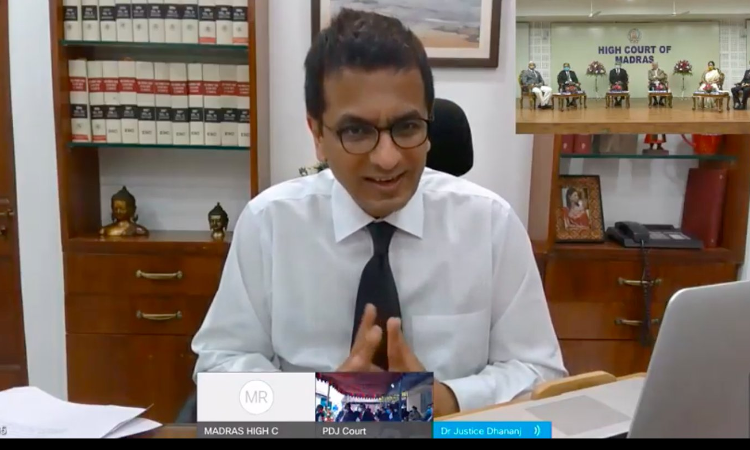Virtual Courts Increased Productivity Of Young Women Lawyers: Justice Chandrachud
LIVELAW NEWS NETWORK
17 Sept 2020 7:06 PM IST

Next Story
17 Sept 2020 7:06 PM IST
The functioning of courts via virtual medium has increased the productivity of young lawyers, particularly women lawyers, said Justice D Y Chandrachud, judge of the Supreme Court."I am particularly impressed with the number of juniors who are appearing in SC in virtual courts. They have a sense of confidence. They are not daunted by a real physical court where they have to argue in front...
